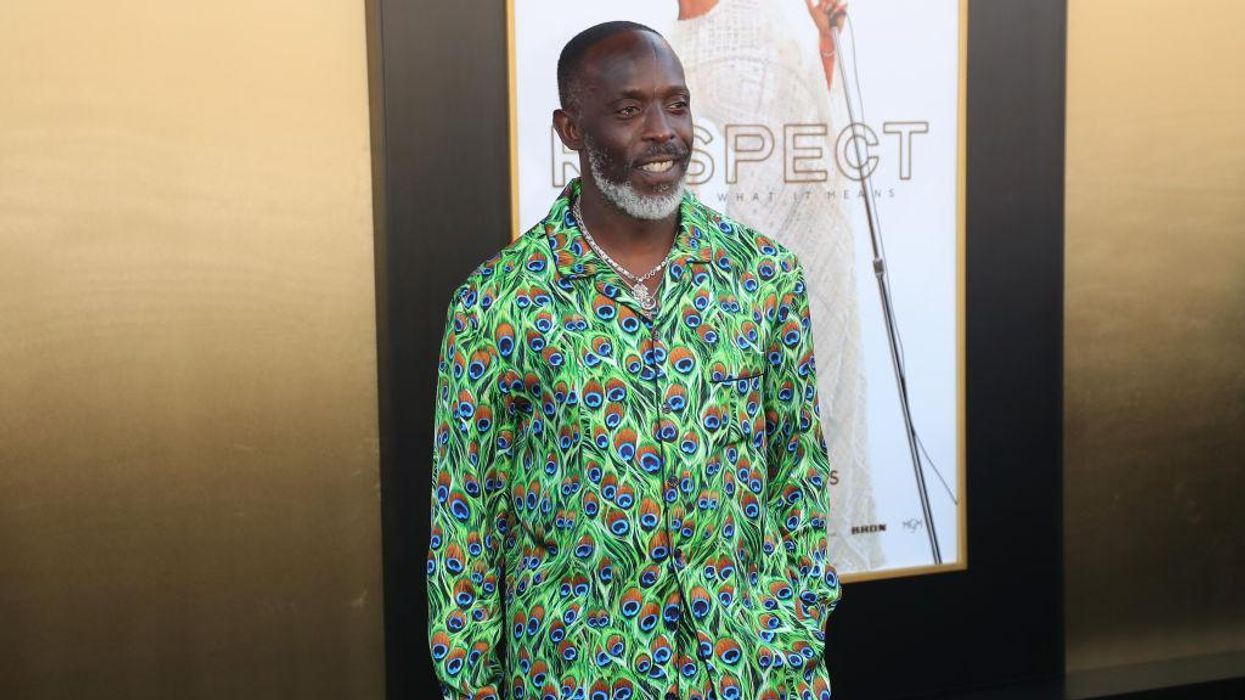
Leon Bennett/WireImage/Getty Images

The greatest show in the history of television lost its greatest character, greatest ambassador, and greatest actor yesterday.
Michael K. Williams died of an apparent drug overdose inside his Brooklyn apartment. On the iconic TV show "The Wire," Williams played the iconic role of Omar Little, a gay stickup man who robbed drug dealers while adhering to an unshakeable moral code.
"The Wire" was a show about cops, drug dealers, drug users, and politicians. It produced an unforgettable star whose character was none of those things. Omar was a man with a code in a city, Baltimore, that violated every code. The show was gritty and profane. Omar never cursed. The police, politicians, and drug dealers were ruthlessly ambitious and, when necessary, ruthlessly violent. Omar never put his gun on somebody who wasn't in the game.
No show has ever done irony as well as "The Wire." A thief, Omar Little, overturned the tables of money-changers and the benches of those selling heroin. In Baltimore's den of thieves, a thief played the role of savior, moral crusader, and wise man.
Over the course of five seasons, Omar delivered as many classic lines as Hemingway and Twain.
"Man, money ain't got no owners, only spenders." –Season 4 episode "Refugees"
"You come at the king, you best not miss." –Season 1 episode "Lessons"
"A man gotta have a code." –Season 4
"I got the shotgun. You got the briefcase. It's all in the game, though, right?" –Season 2 episode "All Prologue"
"How you expect to run with the wolves come night when you spend all day sparring with puppies?" –Season 4 episode "Home Rooms"
"The Wire" and Omar Little had a profound impact on my worldview.
The creator, David Simon, produced a narrative arc that explained America and its urban cities in a sophisticated manner. "The Wire" did what black rappers falsely claimed they were doing with commercial music. The show exposed the perversion of our drug war, the perversion of black culture, and the perversion of politics.
Ice Cube, Ice T, Tupac Shakur, Notorious B.I.G., Snoop Dogg, Dr. Dre, Jay-Z, 50 Cent, and all the other so-called CNNs of the ghetto exploited and glorified drug culture. They were and are melanated versions of the sleazy "Wire" lawyer Maurice Levy. They turned a profit off the suffering and degradation of the black poor.
Simon, a former newspaperman, and his writing partner, Ed Burns, a former Baltimore detective, objected to the exploitation in the most powerful way possible. They shoved it in our faces. Most people looked away. "The Wire" never attracted a massive viewing audience. Hollywood's liberal tastemakers refused to bestow their highest honors on the show. "The Wire" never won an Emmy. Michael K. Williams never won an Emmy for his portrayal of Omar.
The alleged champions of diversity and inclusion, the liberals who all just love black people, reserved their highest accolades for "The Sopranos" and James Gandolfini, "Breaking Bad" and Bryan Cranston, "Mad Men" and Jon Hamm.
Rather ironic, isn't it? A show dependent on a mostly black cast and a story depicting the plight of mostly poor black people is widely regarded as the greatest show in TV history, but it was never recognized as that by Hollywood.
How many Grammy Awards have been showered on the rappers who glorify gangsta culture? Societies produce what they reward. "The Wire" didn't receive its flowers when it aired from 2002 to 2008. That's why 50 Cent's "Power" replaced "The Wire." "Power" is a juvenile, unsophisticated celebration of drug dealers.
Did Michael K. Williams receive his flowers while living? No.
With far less than one-tenth the screen time of Gandolfini's Tony Soprano, Cranston's Walter White, and Hamm's Don Draper, Williams created a character, Omar, the equal of any TV character in history. And has a character ever had more impact?
Omar Little helped me overcome my negative perception of gay men. I grew up a meathead, a typical jock with a typical attitude toward gay men. Omar made me re-evaluate my attitude. The content of his character was so strong that it made me evaluate the content of my character.
I'm not endorsing homosexuality. It's no different from sex outside a marriage between a man and a woman. It's a sin. It's no different from the sex I've had outside marriage with women. It's no different from my gluttony. Gay men have the same struggle with sin as I do. I foolishly used to think I was better than them, that my sin was more righteous than theirs.
Omar Little taught me that all men are capable of adopting a code of conduct worthy of respect. Omar taught me that all men are created equal. He humbled me and made me a better person.
For that, I will always be thankful for Michael K. Williams and "The Wire."Jason Whitlock
BlazeTV Host